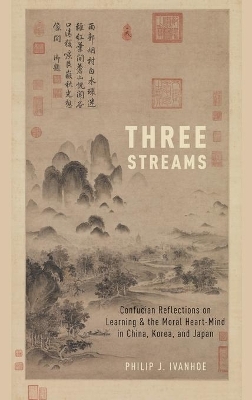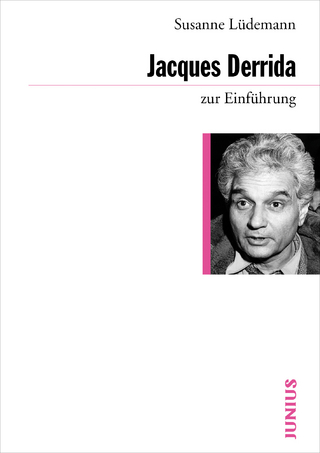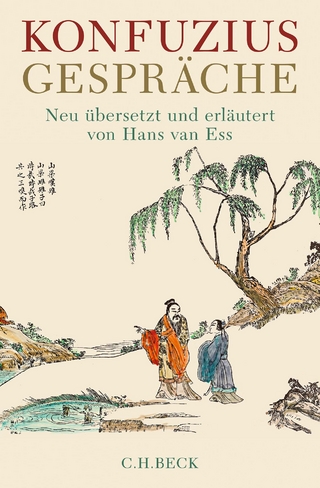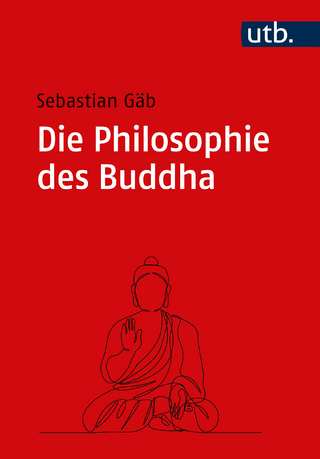
Three Streams
Oxford University Press Inc (Verlag)
978-0-19-049201-4 (ISBN)
Recent interest in Confucianism has a tendency to suffer from essentialism and idealism, manifested in a variety of ways. One example is to think of Confucianism in terms of the views attributed to one representative of the tradition, such as Kongzi (Confucius) (551-479 BCE) or Mengzi (Mencius) (372 - 289 BCE) or one school or strand of the tradition, most often the strand or tradition associated with Mengzi or, in the later tradition, that formed around the commentaries and interpretation of Zhu Xi (1130-1200). Another such tendency is to think of Confucianism in terms of its manifestations in only one country; this is almost always China for the obvious reasons that China is one of the most powerful and influential states in the world today. A third tendency is to present Confucianism in terms of only one period or moment in the tradition; for example, among ethical and political philosophers, pre-Qin Confucianism-usually taken to be the writings attributed to Kongzi, Mengzi, and, if we are lucky, Xunzi (479-221 BCE)-often is taken as "Confucianism." These and other forms of essentialism and idealism have led to a widespread and deeply entrenched impression that Confucianism is thoroughly homogenous and monolithic (these often are "facts" mustered to support the purportedly oppressive, authoritarian, and constricted nature of the tradition); such impressions can be found throughout East Asia and dominate in the West. This is quite deplorable for it gives us no genuine sense of the creatively rich, philosophically powerful, highly variegated, and still very much open-ended nature of the Confucian tradition. This volume addresses this misconstrual and misrepresentation of Confucianism by presenting a philosophically critical account of different Confucian thinkers and schools, across place (China, Korea, and Japan) and time (the 10th to 19th centuries).
Philip J. Ivanhoe (Ph.D. Stanford University) is Chair Professor of East Asian and Comparative Philosophy and Religion at City University of Hong Kong, where he also serves as director of the Center for East Asian and Comparative Philosophy (CEACOP), the Laboratory on Korean Philosophy in Comparative Perspectives, and the project Eastern and Western Conceptions of Oneness, Virtue, and Human Happiness. He specializes in the history of East Asian philosophy and religion and its potential for contemporary ethics.
Acknowledgments
Conventions
Introduction
Part I: China
Preface: Two Schools of neo-Confucianism
Chapter One: Cheng Hao (1032-85)
Chapter Two: Cheng Yi (1033-1107)
Chapter Three: Dai Zhen (1722-1776)
Summary: Philology, Psychology, and Anthropology
Part II: Korea
Preface: The Great Debates of Korean Confucianism
Chapter Four: The Four-Seven Debate
Chapter Five: The Horak Debate
Chapter Six: Jeong Yakyong (1762-1836)
Summary: Experience, Evidence, and Motivation
Part III: Japan
Preface: Confucianism, Shinto, and Bushido
Chapter Seven: Nakae Toju (1608-48)
Chapter Eight: Yamazaki Ansai (1619-1682)
Chapter Nine: Ito Jinsai (1627-1705)
Summary: Duty, Love, and Heaven
Conclusion
Works Cited
Index
| Erscheinungsdatum | 14.10.2016 |
|---|---|
| Verlagsort | New York |
| Sprache | englisch |
| Maße | 241 x 155 mm |
| Gewicht | 680 g |
| Themenwelt | Geisteswissenschaften ► Philosophie ► Östliche Philosophie |
| Geisteswissenschaften ► Religion / Theologie ► Weitere Religionen | |
| ISBN-10 | 0-19-049201-5 / 0190492015 |
| ISBN-13 | 978-0-19-049201-4 / 9780190492014 |
| Zustand | Neuware |
| Informationen gemäß Produktsicherheitsverordnung (GPSR) | |
| Haben Sie eine Frage zum Produkt? |
aus dem Bereich


